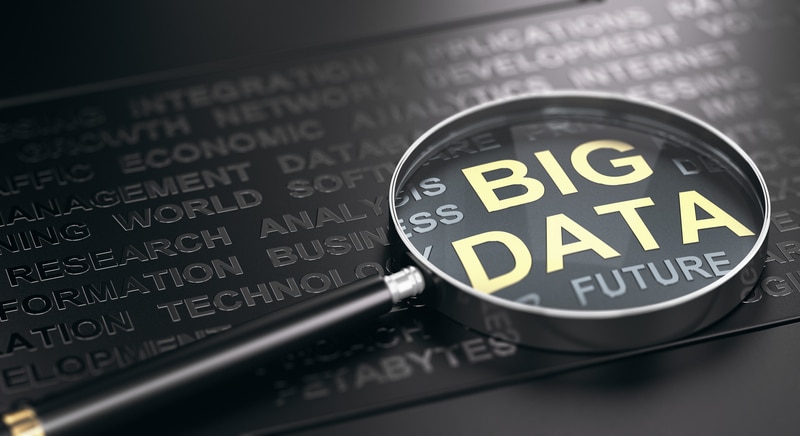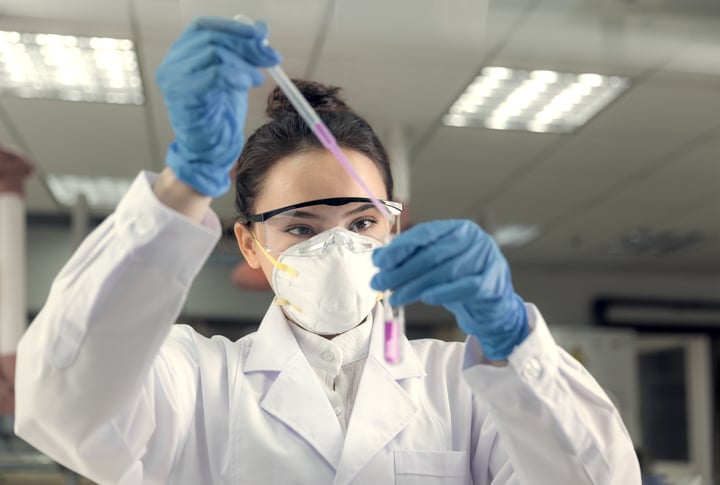
Big data is a term increasingly used by professionals in the pharmaceutical industry in recent years, as it is considered to be key to furthering pharmaceutical research and development (R&D). When used effectively, the information provided helps facilitate the discovery of a new drug product. The discovery of drugs becomes an easier process, as the data is used to predict how the drug will interact with the person consuming it. This data is also used to make research more efficient and to enhance clinical trials, as well as to facilitate technological innovation and improve client safety.
With the use of this data, companies in this field can more easily find candidates for new drugs, and develop and manufacture them more efficiently before being brought to market. Here’s a closer look at how big data is contributing to the pharmaceutical industry’s evolution.
What Is Big Data? And How Is It Applied in the Pharmaceutical World?
Big data analyzes sets of information that is otherwise complex and large in size. When this type of data is acquired by pharmaceutical companies, they can use it to:
- more effectively collaborate with other companies
- improve their risk management
- study the interactions between drugs and protein structures more easily
- analyze how drugs will affect those who consume it and if they may be harmed
- make clinical trials more efficient

Analyzing complex data can be used to improve processes within the industry
Pharmaceutical companies can share their data with each other, as well as with scientists. This allows them to provide easy access to their findings and ideas for other pharma companies to draw from for industry-wide advancement. With this in mind, pharmaceutical manufacturers should consider integrating big data into their operations as a solid method of improving processes. This is particularly true with regards to improved decision-making on drugs, and reduced costs during the development and manufacturing processes.

The use of big data can save time and money for companies developing drugs
However, students in pharma courses should recognize that heavy costs are partly why big data analytics has taken its time establishing itself within the industry. A perceived lack of clear evidence of success among peers has made some pharmaceutical companies hesitant to put lots of investment into big data. As such, it may be more effective to integrate big data into pharmaceutical operations slowly, testing its use and cost savings potential in smaller parts of the business one by one, rather than all at once.
Which Innovations Should Pharmaceutical Training Students Watch Out For?
The rise of big data analytics in the pharmaceutical world has led to some truly intriguing developments within the last few years. For example, clinical trials benefit from big data, as they can use more sophisticated processes, such as real-time monitoring of study subjects.
Additionally, mobile apps and social media allow for a greater connection between consumers and pharmaceutical companies. This allows companies to more accurately monitor clients’ health, as well as use data to link virtually every component of the healthcare and pharmaceutical industries. As an introduction to research and development is among the first courses you’ll take during pharmaceutical training, this is important to remember.

Precision medicine is a significant benefit of big data use in the pharmaceutical industry
An increased emphasis on technology and machine learning can be used to leverage software and artificial intelligence to save money, as well as time on both research and the clinical trials themselves. Additionally, the development of precision medicine can be furthered with big data, as significant amounts of information are needed to determine what is necessary for the drug to effectively serve its purpose. This type of medicine is meant to be personalized for different consumers’ needs, based on factors such as:
- Behaviour
- Environmental factors
- Genetics
- Lifestyle
- Vulnerability to specific disorders and conditions
Another major trend is with regards to predictive data modeling, which can be used to make drug discovery less expensive. This type of modeling can also be used to predict whether or not someone will be able to use a specific drug product, based on various factors about that client’s health and genes. Companies can use this data to prevent clients from taking drugs that will ultimately not be helpful or beneficial to them.
With any of these innovations, the goal is for the most important processes in drug R&D to be improved, particularly development, cost-efficiency, and minimizing the number of failed trials.
Want to start taking online pharmaceutical courses?
Contact the Academy of Applied Pharmaceutical Sciences today!



